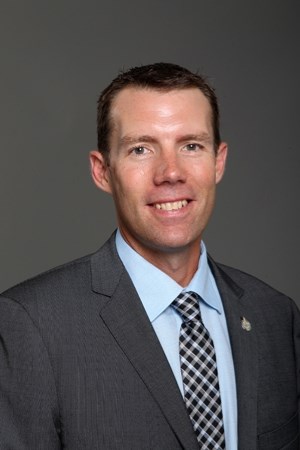An impending federal carbon tax announced earlier this week has been met with opposition from provincial leaders and federal ministers.
The federal tax will see a minimum price on carbon of $50 per tonne by 2022, beginning with $10 per tonne in 2018 and increasing by $10 per year.
According to the Canadian Taxpayers Association, a $50 per tonne carbon tax would drive the price of gas up by 11 cents per litre and result in a total of $2,569 in new taxes each year.
Alberta’s carbon tax is set to kick in Jan. 1, 2017 at $20 per tonne and will rise to $30 per tonne in 2018.
Foothills MP John Barlow said it’s not the right time to be implementing such an inflated tax on Canadians and especially on Albertans.
“With the economy the way it is, the way this industry is really fragile, that they’d add something like this onto it is just a shock,” said Barlow.
He said there was a lot of bi-partisan support for the Paris Accords that Trudeau signed, which had been negotiated largely by the Conservative government.
“Nowhere in there did it say anything about a $50 per tonne carbon tax,” said Barlow. “Nowhere did it say anything about infringing on provincial jurisdiction.”
The provinces and federal ministers were blindsided by the announcement, he said. Though there were hints that a carbon tax was coming in the future, he said setting it to $50 by 2022 makes it the highest tax of any other jurisdiction worldwide.
He said the Canadian economy will be rendered uncompetitive with other countries.
“This is not just the energy sector, this will affect manufacturing, agriculture,” said Barlow. “All these other industries will be having to somehow absorb this carbon tax and they won’t be able to be competitive.”
He said Foothills farmers are concerned about looming increased costs. One farmer told Barlow his fuel costs will rise up to $25,000, but considering increased costs to fertilizer and contracted services that will also see rising costs, the total impact could be $50,000 per year.
The potential negative affect on rural Canada and smaller communities has not been considered, Barlow said.
He said during debates in the House of Commons he spoke at length on the message that Albertans will take a blow from a heavy-handed carbon tax.
“The message I was getting from the Liberal government is they’re saying, ‘Get an electric car, use public transit,’ they’re just yelling it across the aisle,” said Barlow. “And I’m like, ‘You know you guys, in 99 per cent of my riding I have zero public transit. Zero. How many head of cattle can I get on a bus? How many loads of grain can I haul with a Prius?’”
It’s not only federal ministers that are in shock over the announcement. Provincial leaders rose up in opposition immediately after hearing the news. Three environmental ministers walked out of a meeting in Montreal when the hammer came down Oct. 4.
Barlow said the decision has damaged the relationship between the federal and provincial governments.
“Something like this, it impacts their economies as well and they have very limited control over it,” said Barlow. “This is a sledge hammer top-down governing that I don’t think is healthy for Canada.”
Highwood MLA Wayne Anderson said the federal government has been misguided in its sudden implementation of high carbon tax.
“It’s the wrong thing at the wrong time to the wrong people,” said Anderson. “We’ve got almost double-digit unemployment in Calgary and over 120,000 people have lost their jobs in Alberta. Now is not the time to tax ourselves to prosperity.”
In light of the federal carbon tax, he said the Alberta NDP should rethink the provincial carbon tax and repeal it immediately.
“People are in a tough spot,” said Anderson. “I think the premier should repeal the carbon tax and wait until the economy recovers and maybe reconsider something else.”
While Notley has stated publically the provincial government will give “very serious consideration” to rebates to Albertans from Ottawa’s carbon tax, Anderson said it’s not enough. Rebates are like bribes for taxpayers, he said.
“First they take your money, then they account for it, then they give you back some of it,” said Anderson. “It’s never really been clear as to how the rebate program’s going to help anybody.”
He said a lot of people in Alberta are living paycheque-to-paycheque, and will not be able to afford basics like gasoline and any other products or services that stand to be taxed.
“Quite frankly, any tax right now on any Canadians or all Albertans is just not the right time to be doing anything like this.”




